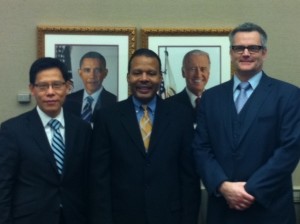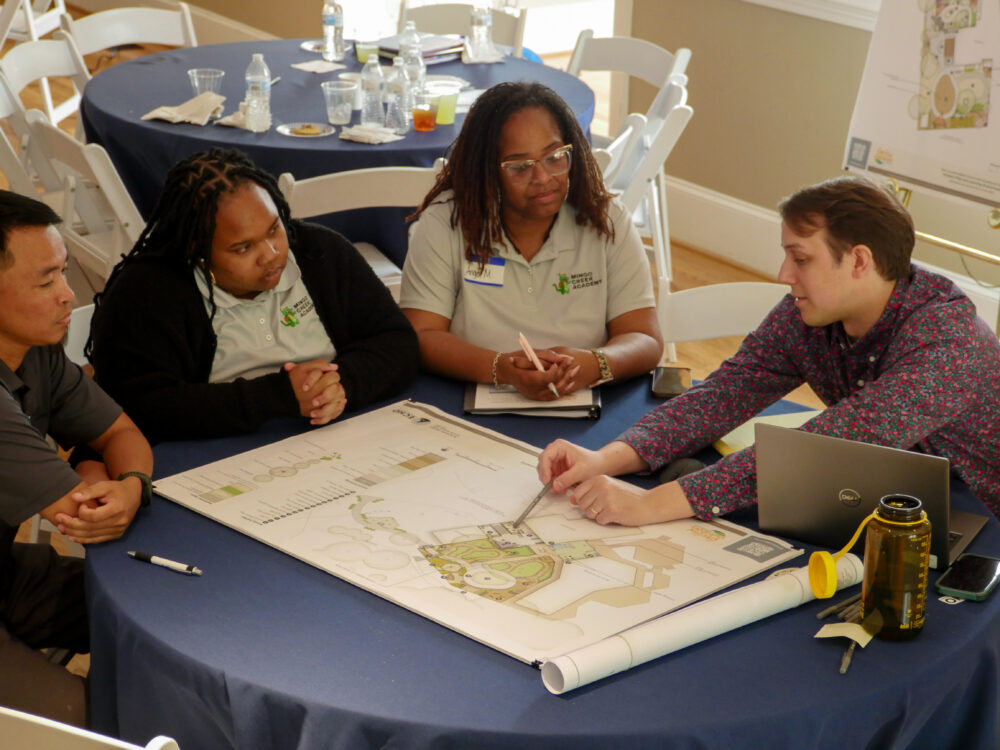We have much more to do and your continued support is needed now more than ever.
Building Bridges: Can Eco-Schools Help Build a Stronger Sustainability Bridge Between Portland and Hong Kong?
![]() This week I had the pleasure of attending a meeting hosted by the US Environmental Protection Agency’s (EPA) Assistant Administrator and Chief Information Officer, Malcolm Jackson, for Portland, Oregon, Mayor Sam Adams and Commissioner Donald C.K. Tong, of the Hong Kong Economic & Trade Office.
This week I had the pleasure of attending a meeting hosted by the US Environmental Protection Agency’s (EPA) Assistant Administrator and Chief Information Officer, Malcolm Jackson, for Portland, Oregon, Mayor Sam Adams and Commissioner Donald C.K. Tong, of the Hong Kong Economic & Trade Office.
Also present at this meeting was Ms. Jane Nishida, Director of EPA’s Office of Regional and Bilateral Affairs, Mr. Mark Kasman, EPA’s Asia/Pacific Program, Mr. Bassanio So, the Hong Kong Director-General for Economic and Trade Office, Ms. Queenie Wong, Assistant Director-General, Hong Kong Economic & Trade Office, Mr. Justin Harris, EPA’s Greater China Program Manager, Ms. Martha Pellegrino, City of Portland, Oregon Office of Government Relations, and several others.
I guess you’re wondering why I was there. Well, you might say it was about building bridges.
The U.S. EPA and Hong Kong are working collaboratively on improving the environment through several really fascinating sustainability initiatives, and Portland could be considered Hong Kong’s sister city (they share many values and interests).
As Portland is often considered one of the most sustainable cities on Earth, it can serve as a model initiative for many other places. And education for sustainability is where Eco-Schools comes in! I was fortunate to travel to Hong Kong on a recent EPA mission where I met with several individuals at Hong Kong’s Environmental Protection Department, and gave an overview of the international Eco-Schools program in the hopes that they might engage in this international program.

By doing so, we can expand student horizons, helping them to collaborate and share school sustainability experiences with each other, and allowing them to develop unique perspectives on sustainability that only exposure to diverse cultures can bring.
The more I travel for Eco-Schools and the more countries I visit, I realize that Eco-Schools can help to build those really important bridges between cultures, nations, states, schools, students, and the broader world community. It brings to mind this quote from Kofi Annan, “We may have different religions, different languages, different colored skin, but we all belong to one human race.”
How wonderful it would be if all of us could work together to make it a sustainable world!





















